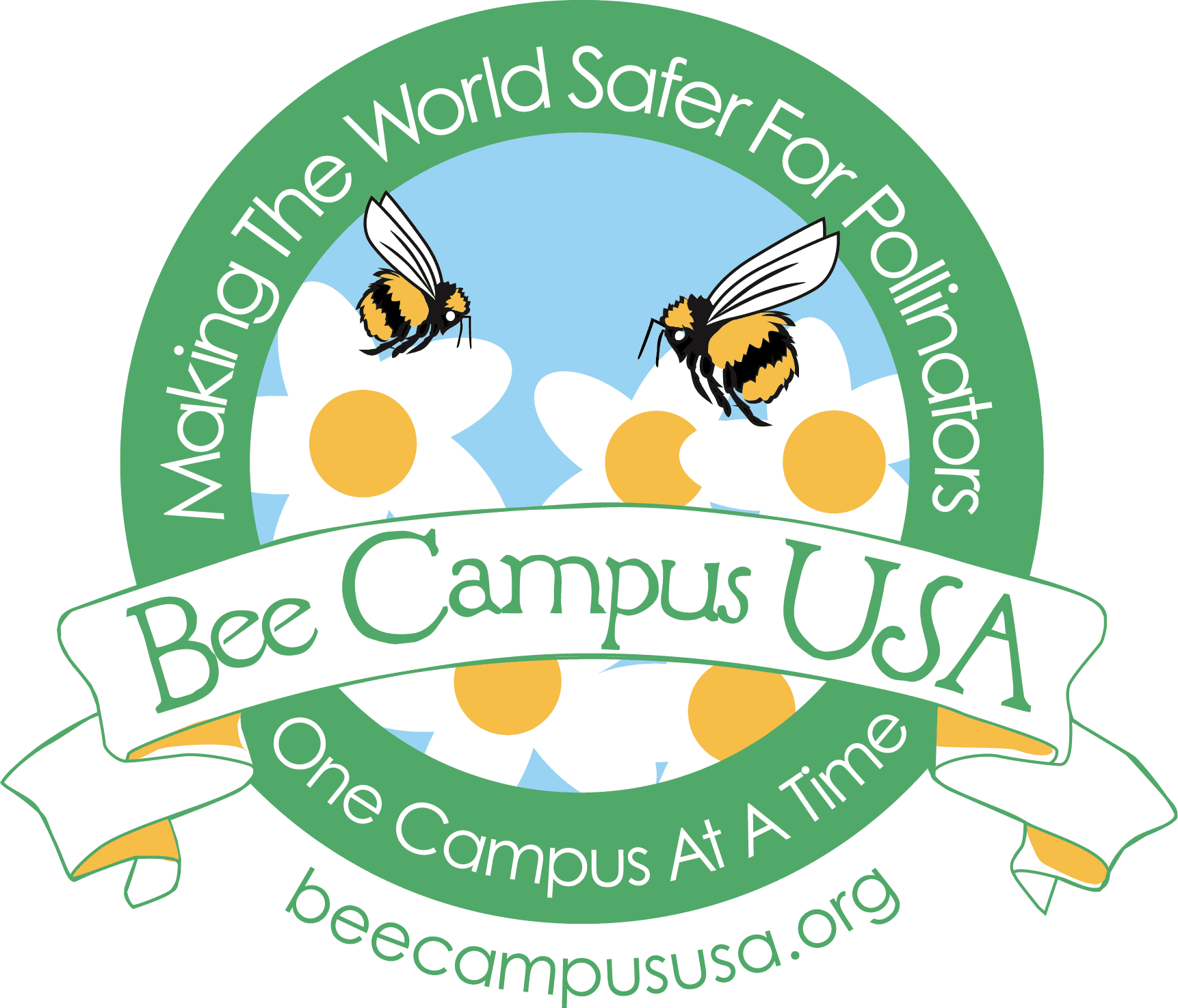UCF is proud to be the first Bee Campus USA in Florida!
About our Program
The Bee City and Bee Campus USA programs are initiatives of the Xerces Society, a non-profit organization that has worked to protect invertebrates and their habitats since 1971. By becoming a Bee Campus USA, UCF actively addresses the plight of pollinators through operations, educational programs, and community engagement. We maintain our designation by submitting an annual report that details our achievements each year and we have been a member for two years. Check out the UCF Arboretum profile.
Pollinator Gardens
Pollinator populations are in decline due to habitat loss, pesticide use, and other stresses. One way to enhance pollinator populations is to establish plants that they need to prosper and grow. UCF planted its first official pollinator garden in 2016, and we have since added two more gardens, with plans to add more. Beyond the pollinator gardens, there are many plants throughout campus landscapes and natural areas that provide abundant food sources for pollinators. You can find information on many of the plants we use in our pollinator gardens by visiting our Pollinator Garden Collection on the Plants Map website.
Get Involved
If you want to contribute to UCF’s Bee Campus USA program, you can sign up for volunteer shifts at Knight Connect, and select a shift to work in the pollinator gardens. Check out our Volunteer page for more information. Interested in getting involved with an independent research project on pollinators? Contact the Arboretum to find out research opportunity. Also, you can contribute through citizen science by posting photos of pollinators to the UCF Biodiversity Project on the iNaturalist app, and add to our knowledge base!

